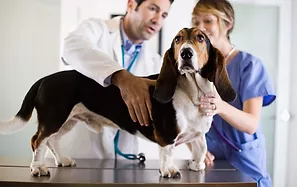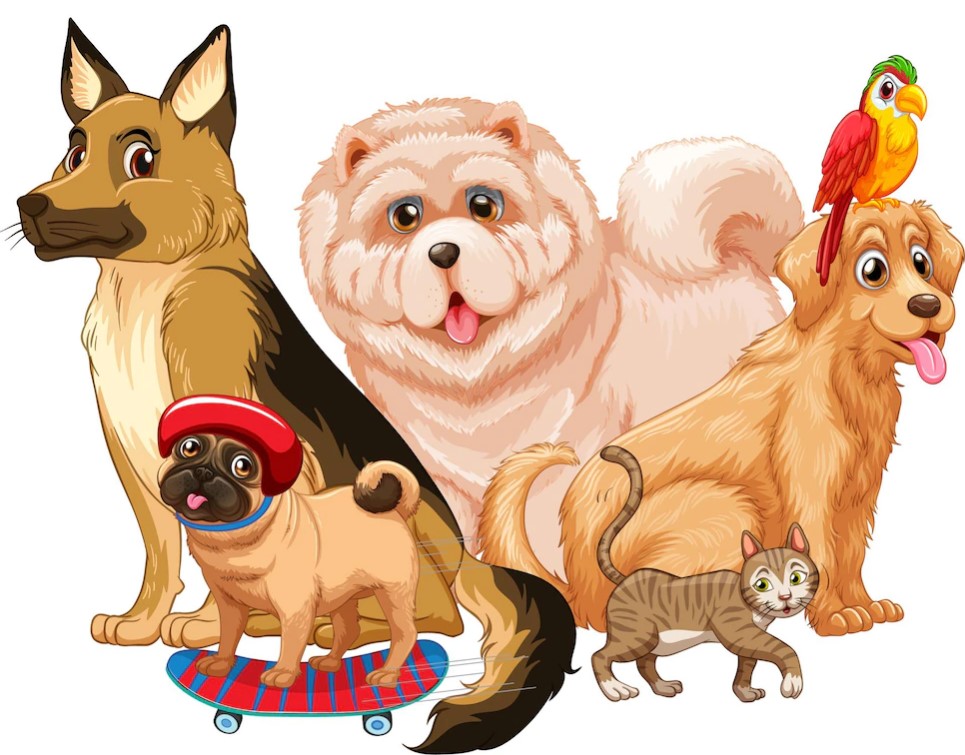Pet first aid
We hope you never experience an emergency situation but it’s always helpful to be prepared.
Learn a little about pet first aid and keep a pet first aid kit in the house. Here are some basic tips on pet first aid that may help enhance the survivability or stabilize your pet whilst awaiting veterinary attention/care:
Learn a little about pet first aid and keep a pet first aid kit in the house. Here are some basic tips on pet first aid that may help enhance the survivability or stabilize your pet whilst awaiting veterinary attention/care:
Wounds
For larger wounds, keep the animal as quiet and still as possible and apply pressure to the wound to help stop bleeding. Apply a bandage using a clean towel, piece of clothing or bandage material. The bandage should be firm but not too tight.
Do not try to remove any foreign object from the wound as this can sometimes make bleeding worse.
Bite wounds often get very infected as the teeth harbour a lot of bacteria which are introduced into the injured tissue. Antibiotics applied topically or are administered systemically at the right dose helps control these infections. Don’t serve your pet food or water as your pet may need to be anaesthetized (general anaesthesia) to repair the wound which ideally requires an empty stomach.
Bite wounds often get very infected as the teeth harbour a lot of bacteria which are introduced into the injured tissue. Antibiotics applied topically or are administered systemically at the right dose helps control these infections. Don’t serve your pet food or water as your pet may need to be anaesthetized (general anaesthesia) to repair the wound which ideally requires an empty stomach.
Breathing
If your pet is experiencing breathing difficulties, try and open up your pet’s airway by pulling the tongue forward out of he mouth until it is flat. Check the throat to see if there are any objects blocking the airway. Breathing problems can be caused by obstructions, asthma (in cats), overheating (heat stroke) and thoracic problems.
Choking
In choking situations, open the mouth and look for the object that may be blocking the airway; try and remove the object carefully with any grasping device so as not to further cause traumatic injuries to the pharynx and the oral mucosa. Be careful as a choking pet might bite in panic.
Heat stroke
Move your pet to a shaded area. Place a cool wet towel around their neck and use a hose or pour cool water over them. Never leave your pet in the car on warm days. The temperature inside a car can rise very quickly to dangerous levels, even on days with mildly hot temperatures.
Poisoning
Try to determine what and how much of the poison (toxin/toxicant) your pet has swallowed. This is very useful for us in choosing the right treatment and antidotes. Here are some examples of substances that are toxic to pets if ingested.
- Chocolate (especially dark chocolate)
- Raisins / grapes / onions
- Ibuprofen / paracetamol
- Anti freeze / rat poison / slug pellets
- Lillies / holly, yew and mistletoe berries
Seizures
Make sure your pet is not near any objects that may harm them. Don’t touch the face or mouth as many pets having a seizure may unintentionally bite. Remove any bright lights or loud noises from the vicinity.
Remember, don’t delay in calling Brackenbury Vets for veterinary help, even if it is just for an advice on the phone.
Remember, don’t delay in calling Brackenbury Vets for veterinary help, even if it is just for an advice on the phone.



